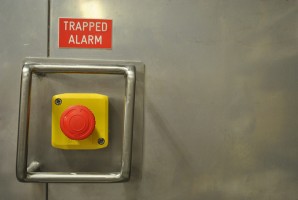Hiring a DBA? Need to get a job description for the human resources folks? Here’s how to get started.
First, decide whether it’s a production or development DBA. Think of the database in terms of a fridge. When you run a restaurant, you need at least one (and probably several) refrigerators to keep your raw ingredients and your prepared dishes cold.
Your chefs rely on the fridges to get their jobs done. They have tons of training to pick the right ingredients to put in the fridge, prepare the food correctly, and know when to take things in & out of the fridge.
If your restaurant absolutely, positively cannot go down, you’ll end up hiring a handyman or facilities guy. He has to know how fridges work, and if a fridge can’t keep the food cold enough, he steps in to diagnose and fix it.
The chefs are your developers.

Development DBAs build your data archiving strategy.
When you have a LOT of chefs, you hire a development DBAs to organize the fridge and clean it out. They don’t usually write code, but if they do, the code is inside the database – they’re not writing presentation-layer code in C# or Java.
The handyman or facilities guy is your production DBA. He’s more concerned about the back side of the fridge than the front side. He doesn’t do any cooking coding.
They all work with the fridges, but the similarities end there. Small shops might indeed hire one guy to buy the food, put it in the fridge, cook it, and fix the fridge when it breaks. However, those shops aren’t going to win any awards for food quality, and when the fridge breaks, the cooking stops while he fixes the fridge.
Sample Production Database Administrator Job Description

The open source databases say information wants to be free as in beer.
This position’s job duties and responsibilities include:
- Ensure all database servers are backed up in a way that meets the business’s Recovery Point Objectives (RPO)
- Test backups to ensure we can meet the business’ Recovery Time Objectives (RTO)
- Troubleshoot SQL Server service outages as they occur, including after-hours and weekends
- Configure SQL Server monitoring utilities to minimize false alarms
- As new systems are brought in-house, choose whether to use clustering, log shipping, mirroring, Windows Azure, or other technologies
- Install and configure new SQL Servers
- Deploy database change scripts provided by third party vendors
- When performance issues arise, determine the most effective way to increase performance including hardware purchases, server configuration changes, or index/query changes
- Document the company’s database environment
To do a great job in this position, experience should include:
- On-call troubleshooting experience with at least one production SQL Server for a year. You don’t have to be the only DBA or have DBA in your job description, but you should have been the one person that the company would call if the SQL Server service stopped working.
- Finding DMV queries to answer questions about server-level performance
- Using free tools like sp_Blitz™ and sp_WhoIsActive to diagnose server reliability and performance issues
The following skills aren’t strictly necessary, but will make you a well-rounded candidate for bonus points:
- Tuning T-SQL queries to improve performance
- Troubleshooting hardware using tools like Dell OpenManage, HP System Insight Manager, and IBM Director
Sample Development Database Administrator Job Description

Ever since we had a BI developer get locked in the data warehouse, we’ve taken precautions.
This position’s job duties and responsibilities include:
- Ensure that new database code meets company standards for readability, reliability, and performance
- Each week, give developers a list of the top 10 most resource-intensive queries on the server and suggest ways to improve performance on each
- Design indexes for existing applications, choosing when to add or remove indexes
- When users complain about the performance of a particular query, help developers improve the performance of that query by tweaking it or modifying indexes
- Conduct SQL Server lunch-and-learn sessions for application developers
- Advise developers on the most efficient database designs (tables, datatypes, stored procedures, functions, etc)
To do a great job in this position, experience should include:
- Writing and improving SQL Server T-SQL queries for at least a year. You may have technically had “C# Developer” or “Java Developer” on your job title, but you were known amongst the office as the go-to person for T-SQL questions.
- Designing tables and picking datatypes
- Using Profiler traces and other tools to find the most frequently run queries
- Using free tools like sp_BlitzIndex™ and DMV queries to answer questions about index usage
The following skills aren’t strictly necessary, but will make you a well-rounded candidate for bonus points:
- On-call troubleshooting for SQL Server service outages
- Deciding whether clustering, log shipping, mirroring, replication, etc are the right fit to solve a business problem
Things I Didn’t Include In These DBA Job Descriptions

You can always tell who’s using peer-to-peer replication.
If you’re using any of the following technologies, mention it in your job description so that the candidates know what to expect:
- Failover clustering, SAN replication, and other high availability technologies
- SQL Server merge, peer to peer, or transactional replication
- LINQ, Entity Framework, NHibernate, or other ORMs
- Service Broker
- Analysis Services, Integration Services, or Reporting Services
There’s nothing wrong with having your production or development DBA work with those technologies, by the way – but they’re special technologies that require prominent placement in job descriptions.




This comment has been removed by a blog administrator.
ReplyDelete